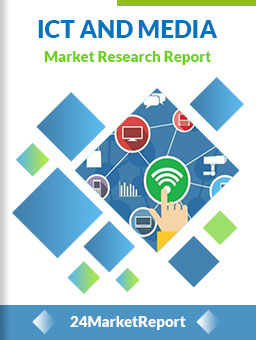
Download FREE Report Sample
Download Free sampleMARKET INSIGHTS
Global Robotic Process Automation (RPA) Service market was valued at USD 517 million in 2024 and is projected to reach USD 811 million by 2032, exhibiting a CAGR of 6.8% during the forecast period.
Robotic Process Automation (RPA) refers to software technology that enables businesses to automate rule-based, repetitive tasks by mimicking human interactions with digital systems. RPA services encompass consulting, implementation, maintenance, and managed services that help organizations deploy intelligent automation across finance, HR, customer service, and other business functions.
The market growth is driven by increasing demand for operational efficiency, cost reduction, and digital transformation across industries. While financial services remain the largest adopters, sectors like healthcare and retail are rapidly embracing RPA to streamline processes. Key players including UiPath, Automation Anywhere, and Blue Prism dominate the landscape, though regional specialists are gaining traction in emerging markets.
Cost Efficiency and Operational Productivity Drive Adoption of RPA Services
Robotic Process Automation (RPA) services are witnessing accelerated demand as organizations prioritize cost reduction and operational efficiency. The technology enables businesses to automate repetitive, rule-based tasks, reducing human intervention while improving accuracy. Recent studies indicate companies implementing RPA services achieve cost savings of 30-60% in back-office operations, with ROI often realized in less than 12 months. This financial efficiency has made RPA a cornerstone for digital transformation, particularly in industries with high-volume transactional processes like financial services and healthcare.
Digital Transformation Initiatives Accelerate RPA Service Demand
To know more about market statistics, Download a FREE Sample copy
The global push toward digital transformation continues to fuel RPA service adoption across industries. As businesses modernize legacy systems, RPA serves as a bridge between outdated technologies and next-generation platforms. The banking sector leads this adoption, with over 40% of RPA implementations focused on automating loan processing, KYC verification, and fraud detection. Healthcare organizations are also leveraging RPA to streamline patient data management and claims processing, reducing administrative costs by an average of 50%. This cross-industry digitization creates sustained growth opportunities for RPA service providers.
➤ For instance, leading financial institutions have reported 80% improvement in process cycle times after implementing RPA solutions for compliance reporting and account reconciliation processes.
Furthermore, the integration of RPA with emerging technologies like artificial intelligence and machine learning is creating intelligent automation solutions. This convergence enables more complex process automation, expanding RPA's applicability beyond repetitive tasks into cognitive operations.
Integration Complexities and Change Management Hinder Widespread Adoption
While RPA offers significant benefits, implementation challenges persist as major barriers to adoption. Many organizations struggle with integrating RPA solutions into existing IT infrastructures, particularly in hybrid cloud environments. Compatibility issues between RPA tools and legacy systems account for approximately 35% of implementation delays, increasing project costs and timelines. Furthermore, the cultural resistance to automation and workforce displacement concerns create additional hurdles. Enterprises report that change management initiatives consume nearly 40% of total RPA project resources, diverting attention from technical implementation.
Other Challenges
Process Standardization Requirements
RPA implementation demands well-defined, standardized processes - a requirement that proves challenging for organizations with inconsistent workflows. Inadequate process documentation and continuous process variations require significant preprocessing work, adding 20-30% to implementation timelines.
Scalability Limitations
Many organizations encounter difficulties scaling RPA implementations beyond pilot programs. Maintenance requirements grow exponentially as automation expands, with some enterprises reporting that 30-50% of initially automated processes require frequent adjustments due to system or process changes.
Shortage of Skilled RPA Professionals Creates Implementation Bottlenecks
The rapid growth of RPA adoption has created an acute shortage of qualified professionals proficient in automation design, development, and maintenance. Industry surveys indicate that 65% of organizations cite talent scarcity as their primary barrier to RPA expansion. The shortage is particularly acute for professionals with cross-functional expertise spanning business process analysis and technical implementation. This talent gap has led to extended project timelines, with some enterprises reporting 6-9 month delays in securing necessary automation resources. Furthermore, the competitive hiring market has driven up RPA professional salaries by 20-40% in key markets, increasing total cost of ownership.
Additionally, the evolving nature of RPA technology creates continuous upskilling requirements. Automation developers must constantly learn new platforms and integrations, as the average RPA tool undergoes major updates every 12-18 months. This rapid pace of technological change makes it challenging to maintain an adequately skilled workforce.
Expansion into Small and Medium Enterprises Presents Untapped Growth Potential
The RPA services market is poised for significant expansion as solutions become increasingly accessible to small and medium-sized enterprises (SMEs). Traditionally dominated by large enterprises, the RPA market is shifting as cloud-based, low-code platforms democratize automation capabilities. Industry analysts project SME adoption to grow at 25% annually through 2032, nearly double the enterprise growth rate. This growth is fueled by affordable subscription models that allow SMEs to implement RPA without substantial upfront investments. The manufacturing and retail sectors show particular promise, with SMEs automating inventory management, order processing, and customer service functions.
Furthermore, the rise of industry-specific automation templates reduces implementation complexity for SMEs. Service providers are developing pre-configured solutions for common use cases in healthcare, legal, and accounting verticals, enabling faster deployment and lower customization costs. These solutions address 60-80% of typical automation requirements out-of-the-box, significantly reducing the expertise needed for implementation.
Partnership ecosystems also present growth opportunities, as RPA vendors collaborate with system integrators and consulting firms to expand market reach. These partnerships help bridge the expertise gap for organizations new to automation while accelerating implementation timelines through standardized methodologies.
Managed RPA Services Segment Dominates Due to Increasing Demand for End-to-End Automation Solutions
The market is segmented based on type into:
RPA Consulting
Automation Design
RPA Development
Infrastructure and Automation Support
Managed RPA Services
Others
BFSI Segment Leads as Financial Institutions Prioritize Operational Efficiency
The market is segmented based on application into:
BFSI
Retail
Manufacturing
Transport & Logistics
Hospitality
Communications
Others
Cloud-Based Solutions Gain Traction Due to Scalability Benefits
The market is segmented based on deployment model into:
On-premise
Cloud-based
Hybrid
Large Enterprises Account for Majority Adoption Rates
The market is segmented based on organization size into:
Small and Medium Enterprises (SMEs)
Large Enterprises
Strategic Partnerships and AI Integration Drive Market Competition
The global Robotic Process Automation (RPA) service market features a highly dynamic competitive environment, characterized by both established IT giants and emerging automation specialists. According to recent market analyses, the top five RPA service providers collectively held approximately 38% of the global market share in 2024, demonstrating a semi-consolidated structure with room for mid-tier competitors to grow.
UiPath and Automation Anywhere continue to lead the RPA platform segment, however service providers like Accenture and IBM have gained significant traction by offering comprehensive implementation and managed services. IBM's 2023 acquisition of WDG Automation strengthened its position in intelligent automation, while Accenture has invested over $3 billion in AI and automation capabilities since 2020.
Indian IT service providers are making notable inroads in the RPA services space. Tata Consultancy Services reported a 27% year-over-year growth in its automation practice, while Wipro has deployed over 200,000 bots for clients across industries. These players compete effectively through cost-optimized delivery models and industry-specific automation frameworks.
The market is witnessing increased specialization, with firms like Blue Prism focusing on enterprise-scale deployments and NICE targeting customer service automation. Meanwhile, boutique consultancies such as Roboyo and Vuram compete on vertical expertise and implementation agility.
UiPath (U.S.)
Automation Anywhere (U.S.)
IBM (U.S.)
Accenture (Ireland)
Tata Consultancy Services (India)
Wipro (India)
Blue Prism (U.K.)
NICE (Israel)
Roboyo (Germany)
Vuram (U.S.)
Deloitte (U.K.)
EY (U.K.)
The integration of artificial intelligence (AI) with robotic process automation is transforming traditional automation capabilities into intelligent process automation (IPA). By combining RPA's rule-based task execution with AI's cognitive abilities like machine learning and natural language processing, businesses are achieving unprecedented levels of automation sophistication. This convergence enables bots to handle unstructured data, make contextual decisions, and continuously improve workflows. Recent studies indicate that over 40% of enterprises implementing RPA now incorporate AI capabilities, leading to 30-50% higher efficiency gains compared to standard RPA implementations. Financial institutions are particularly adopting this hybrid approach, with 68% of banks prioritizing AI-RPA integration for fraud detection and customer service automation.
Cloud-Based RPA Solutions
The shift toward cloud-based RPA platforms is accelerating as organizations seek scalable, flexible automation solutions that support remote work environments. Cloud RPA eliminates infrastructure constraints and enables seamless updates, with deployment times reduced by 60-70% compared to on-premise solutions. This trend aligns with broader digital transformation initiatives, as evidenced by the fact that 75% of new RPA implementations in 2024 are cloud-first deployments. Small and medium enterprises are particularly benefiting from this shift, as cloud RPA lowers the barrier to entry by reducing upfront costs and technical requirements.
Vendors are increasingly developing vertical-specific RPA solutions tailored to industry requirements and regulatory environments. In healthcare, RPA solutions automate patient record management and claims processing with 98% accuracy rates, while in manufacturing, bots optimize supply chain operations and quality control processes. The banking sector leads in adoption, accounting for 28% of total RPA spending, followed by insurance and healthcare at 19% and 15% respectively. This specialization trend is creating opportunities for service providers to offer domain-expertise alongside technical implementation capabilities, resulting in more impactful automation outcomes.
North America
The North American RPA services market is the most mature globally, led by the U.S. and Canada, where digital transformation initiatives and strong IT infrastructure drive adoption. Enterprises across banking, healthcare, and insurance sectors are aggressively implementing RPA to streamline back-office operations and reduce costs. With nearly 40% of global RPA investments originating from this region, North America benefits from robust vendor ecosystems and early AI-powered automation adoption. However, high implementation costs and resistance to workforce changes remain key challenges, especially among small and medium businesses. The presence of major players like IBM, UiPath, and Automation Anywhere further accelerates innovation in intelligent automation solutions.
Europe
Europe's RPA market thrives on cross-industry digitalization, stringent compliance requirements, and an increasing focus on operational efficiency. Countries like Germany and the UK account for over 60% of regional RPA spending, primarily in banking and manufacturing. GDPR and other regulatory pressures have compelled enterprises to adopt RPA for error-free data handling. Unlike North America, Europe shows stronger adoption of hybrid RPA models that combine human oversight with automation for complex workflows. While Western Europe leads in RPA maturity, Eastern European nations are catching up, driven by outsourcing demand and competitive service provider rates.
Asia-Pacific
APAC represents the fastest-growing RPA services market, projected to expand at over 30% CAGR, with India, China, and Japan as primary contributors. The region benefits from large-scale digital transformation in banking and IT-enabled services, coupled with cost-effective RPA implementation. India's thriving BPO sector extensively uses RPA to maintain global competitiveness, while Chinese enterprises leverage automation to offset rising labor costs. However, fragmented regulatory landscapes and limited process standardization hinder scalability. The emergence of local players like Tech Mahindra and Wipro provides region-specific solutions, though awareness gaps persist in developing Southeast Asian markets.
South America
RPA adoption in South America remains nascent but shows promise, with Brazil leading in automation uptake across financial services and telecom sectors. Economic constraints have pushed organizations toward cost-saving RPA solutions, particularly in invoice processing and customer service automation. While the region accounts for less than 5% of global RPA revenue, increasing foreign investments and government digitization programs create growth opportunities. Infrastructure limitations and cybersecurity concerns, however, delay large-scale deployments. Most implementations focus on basic task automation rather than enterprise-wide transformation seen in mature markets.
Middle East & Africa
The MEA RPA market is in early development stages, with growth concentrated in UAE, Saudi Arabia, and South Africa. Oil-dependent economies are diversifying through automation, particularly in banking and government sectors. Dubai's Smart City initiative has propelled RPA adoption in public services, while African nations increasingly use automation for financial inclusion projects. Limited technical expertise and high vendor dependence pose barriers, though partnerships with global consulting firms are helping bridge capability gaps. The region's young workforce presents long-term potential for RPA skills development and localized solution growth.
This market research report offers a holistic overview of global and regional markets for the forecast period 2025–2032. It presents accurate and actionable insights based on a blend of primary and secondary research.
✅ Market Overview
Global and regional market size (historical & forecast)
Growth trends and value/volume projections
✅ Segmentation Analysis
By product type or category
By application or usage area
By end-user industry
By distribution channel (if applicable)
✅ Regional Insights
North America, Europe, Asia-Pacific, Latin America, Middle East & Africa
Country-level data for key markets
✅ Competitive Landscape
Company profiles and market share analysis
Key strategies: M&A, partnerships, expansions
Product portfolio and pricing strategies
✅ Technology & Innovation
Emerging technologies and R&D trends
Automation, digitalization, sustainability initiatives
Impact of AI, IoT, or other disruptors (where applicable)
✅ Market Dynamics
Key drivers supporting market growth
Restraints and potential risk factors
Supply chain trends and challenges
✅ Opportunities & Recommendations
High-growth segments
Investment hotspots
Strategic suggestions for stakeholders
✅ Stakeholder Insights
Target audience includes manufacturers, suppliers, distributors, investors, regulators, and policymakers
-> Key players include Wipro, IBM, Deloitte, Tata Consultancy Services, Tech Mahindra, Ernst & Young, and Accenture, among others.
-> Key growth drivers include cost efficiency, process automation demand, digital transformation initiatives, and increasing adoption across BFSI and healthcare sectors.
-> North America currently leads the market, while Asia-Pacific is expected to witness the fastest growth during the forecast period.
-> Emerging trends include hyperautomation, AI-powered RPA solutions, cloud-based deployment models, and increasing focus on intelligent process automation.

Speak to our Custom Research Team and get the Custom Research in a budget
Custom ResearchFrequently Asked Questions ?
A license granted to one user. Rules or conditions might be applied for e.g. the use of electric files (PDFs) or printings, depending on product.
A license granted to multiple users.
A license granted to a single business site/establishment.
A license granted to all employees within organisation access to the product.
Upto Working 24 to 48 hrs
Upto 72 hrs max - Weekends and Public Holidays
Online Payments with PayPal and CCavenue
Wire Transfer/Bank Transfer
Hard Copy




 Industry Market Size
Industry Market Size SWOT Analysis
SWOT Analysis Industry Major Players
Industry Major Players Revenue Forecasts
Revenue Forecasts Historical and Forecast Growth
Historical and Forecast Growth Profitability Analysis
Profitability Analysis
























